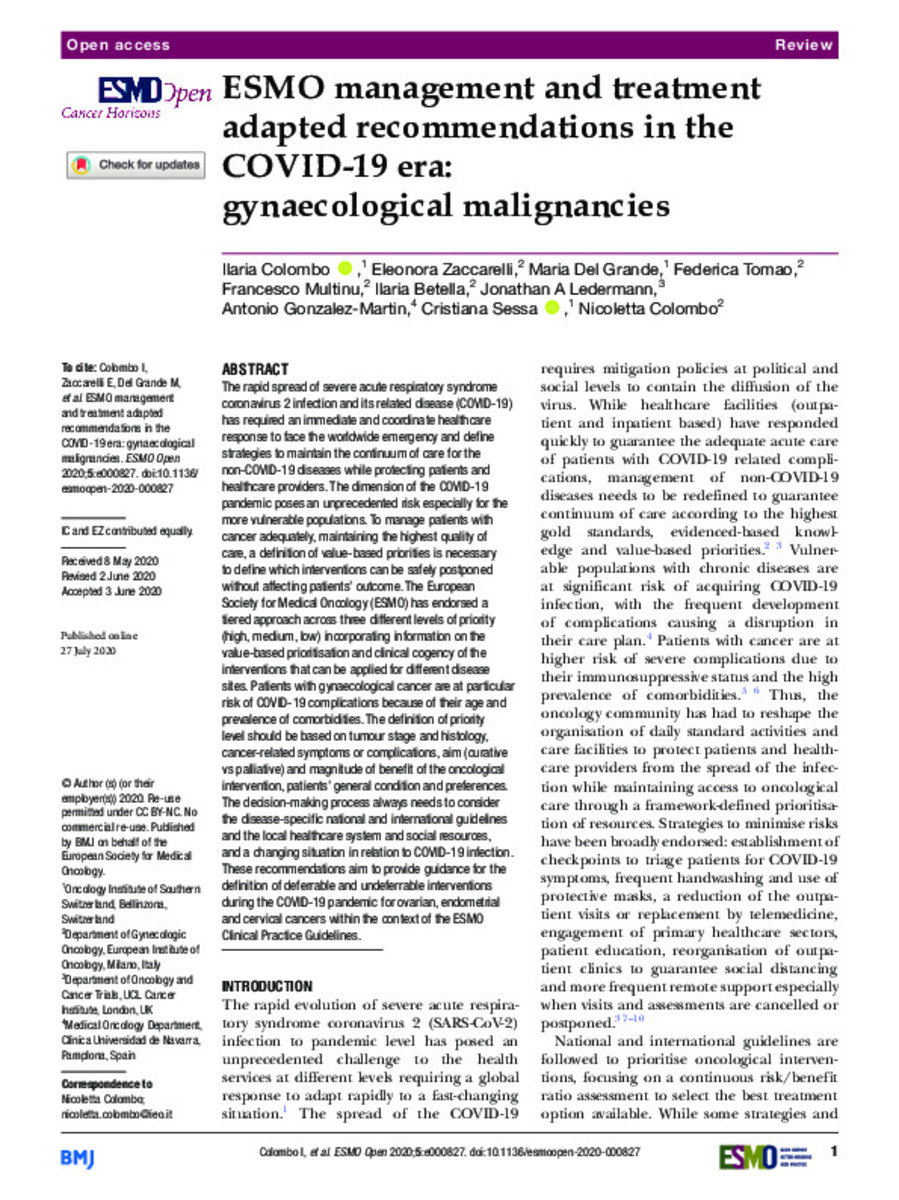ESMO management and treatment adapted recommendations in the COVID-19 era: gynaecological malignancies
Keywords:
Ovarian cancer
Endometrial cancer
Cervical cancer
COVID-19
Value-based priorities
Note:
This is an open access article distributed in accordance with the
Creative Commons Attribution Non Commercial (CC BY-NC 4.0) license, which
permits others to distribute, remix, adapt, build upon this work non-commercially,
and license their derivative works on different terms, provided the original work is
properly cited, any changes made are indicated, and the use is non-commercial.
See: http://creativecommons.org/licenses/by-nc/4.0/.
Citation:
Colombo, I. (Ilaria); Zaccarelli, E. (Eleonora); Del Grande, M. (Maria); et al. "ESMO management and treatment adapted recommendations in the COVID-19 era: gynaecological malignancies". Esmo open. 5 (suppl 3), 2020, e000827
Statistics and impact
0 citas en

0 citas en

Items in Dadun are protected by copyright, with all rights reserved, unless otherwise indicated.







